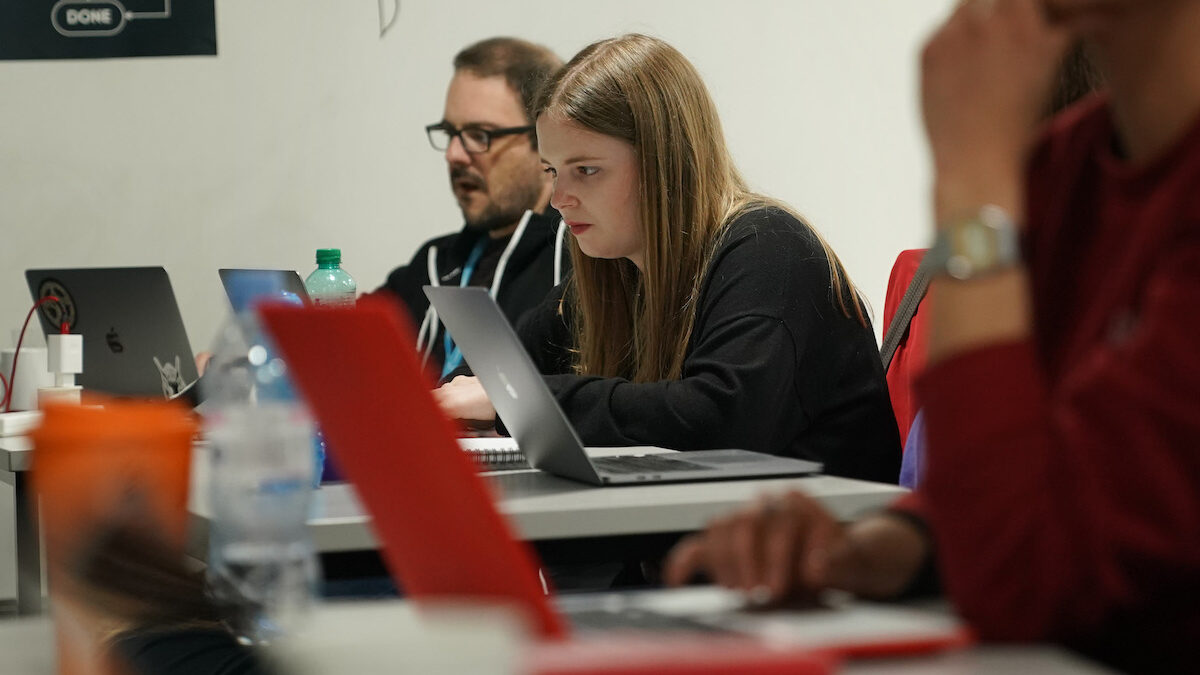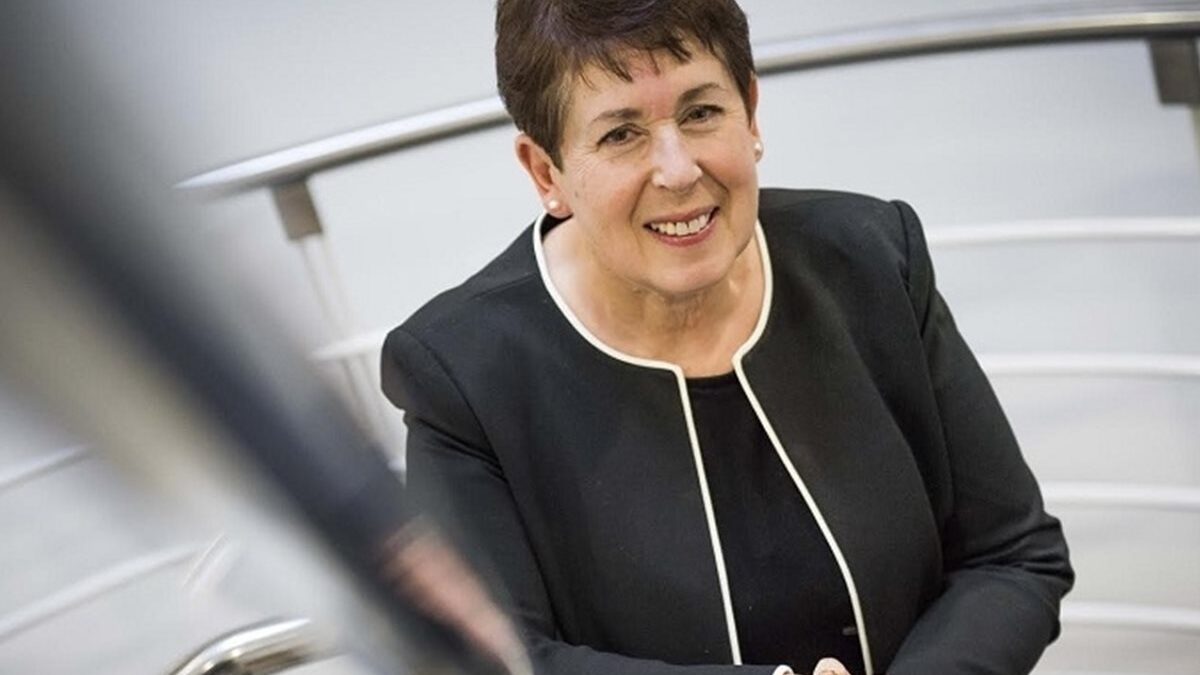In the space of the past twenty four hours, the wires have been humming with news of EU Commission’s launch of the Digital Skills and Jobs Coalition, Oracle’s donation of $1.4 billion to computer sciences and digital skills learning and the Mayor of London, Sadiq Khan, unveiling a £7m Digital Talent Programme to arm young Londoners with the skills they need to access jobs in the capital’s thriving digital, technology and creative industries.
It may be a coincidence that these stories, much to the chagrin of the respective PRs, have broken at the same time or it might simply be that the subject of Digital Skills is now main stream news.
I’d err with the later and it’s not before time that we elevated tech stories from the business pages to the front sections of our on and off line media.
Every single economic indicator, global or local, has been screaming for over a decade, since the mass deployment of broadband and mobile access technologies, that the next industrial revolution will be in the cloud and that the jobs of the future will require computing skills and yet we have somehow managed to ignore the signs.
In 2006 the world’s top six most valuable public companies included General Electric, Citigroup, BP & Royal Dutch Shell. Today these business have been replaced with Apple, Alphabet (Google), Amazon & Facebook. Only ExxonMobil and Microsoft, another tech giant, are common to both lists ten years on, giving credence to the saying that ‘data is the new oil’.
During this same period, Europe has seen demand for workers with computer science and coding skills grow by four percent each year, year on year, and with no sign of abatement.
Back in June of this year, The UK Government’s Science and Technology Committee published a report which frankly made depressing if inevitable reading. The report warns that the UK will need 745,000 extra digitally skilled workers, across all sectors, by 2017. As this wasn’t challenging enough, the report sets out the size of the task in plugging this skills gap, by revealing that 12.6 million adults in the UK lack basic digital skills; 5.8 million people have never used the internet; only 35% of computer teachers in schools have a relevant degree and computing science teacher recruitment sees a 30% shortfall.
If we just focused on Scotland, the figures would be just as shocking. 1 million Scots don’t have internet access. 30 per cent of the Scottish population lack basic digital skills. The number of computing teachers has fallen from 802 to 598 over the past ten years and 17% of secondary schools have no computing specialist. According to projections by Deloitte, Scotland is set to lose £9bn in potential gains over the next 15 years if it doesn’t adopt a visionary digital action plan.
And there we have the crux of the problem. Education in its broadest sense.
We are currently guilty of failing our young people and we are denying them one of the greatest gifts that we can bestow: opportunity. We are anchoring them at the wrong end of the technology food chain and in doing so we are damaging the economic and social prospects of our nations.
It’s not just the formal education system that is failing our young people but the support provided by parents and carers to them as they develop and make life choices.
What is the likelihood of a parent who has never used the internet suggesting to their son or daughter that they consider a career in data analytics or cyber security? I’m not a betting man but I reckon the odds would be pretty high.
At least in Scotland the Education system appears to have woken from its slumber and is starting to make positive changes. There is a recognition that computing science and digital subjects are vital and are now being placed at the heart of the curriculum, more specialist teachers are being recruited and classrooms are being upgraded with latest technology. But, to use an oil analogy again, the education system is one big tanker and it’s going to take time to turn it around.
Changing the perceptions and attitudes of parents and carers towards computing and digital careers on the other hand will take even longer. This is one of the reasons why it is so important that the main media channels, both on and offline, continue to promote the digital world and the opportunities it offers as mainstream at every turn. Oh if there is anyone reading this with TV commissioning responsibilities, please can we have some children’s programmes on computing and technology and the odd Data Centre Network engineer or App Designer wouldn’t go amiss in a soap or two.
So is it all doom and gloom? Have we really created a booming sector and somehow overlooked the development of the talent pipeline to fuel its continued growth?
Well Yes, the facts can’t be disputed, but on the other hand, what is now encouraging and apparent is that we (‘we’ being Government, Education and Industry) have finally recognised that there is a real issue to be addressed and that the time for rhetoric and spin is over and we now need action.
Over the past two years and since the publication of the tech sector Skills Investment Plan by Skills Development Scotland, the country has witnessed some real progress and managed some positive gains.
Only this week Edinburgh based CodeClan, the Digital Skills Academy that delivers intensive programming courses and helps people to reskill and move into the tech sector, celebrated its first birthday by announcing expansion plans into Glasgow. During its inaugural year 166 students have started the course, 101 have completed, with 59 ‘inflight’, and 80% of those who have completed the course are now in relevant jobs. An impressive start.
The DigitalWorld Campaign launched last year is a national initiative that inspires and supports people to go into digital technology careers. Over the past twelve months, using a mix of online and face to face, it has reached thousands of young people and, importantly, their parents, promoting technology and the attractiveness of the sector at every opportunity.
We are also beginning to truly harness and appreciate the power of ‘in work learning’ as we see more and more young people, supported by industry, seek internships and apprenticeships to help them ‘earn whilst they learn’ whilst gaining valuable skills and experience , for example through the highly successful e-placement Scotland programme.
And finally, we have at last woken up to the fact that we need to capture the hearts and minds of our young people long before they are in a position to select their subject choices at S3.
Today’s children are the first generation for whom technology is omnipresent -affecting every element of their lives from the moment they were born. Computational thinking as a skill has never been more needed and we’re seeing recognition of this reflected in preschool and primary services providing children with educational tools to encourage the development of computer and coding skills.
Another hugely positive development has been the acceptance of the importance of extracurricular activities to complement, in some cases filling a void, formal school activity.
The Digital Xtra Fund was created in May this year by the Scottish Government, who contributed £400,000 to fund extracurricular computing science and digital activities for under 16s across Scotland.
In its first year the Fund has supported a wide range of innovative projects that will directly reach over 15,000 young people across the country. Funded projects have included the training of public library employees to deliver Code Clubs to young people across 28 of the 32 Local Authority Library Services and the extension of the Apps for Good programme across Scotland. Apps for Good will now engage 2,500 young people and provide them with the opportunity to design, build, market and launch apps to solve problems in their communities.
It has to be recognised that what we are trying to achieve here is as much a cultural shift as it is simply a skills rebalance but we have at least started the journey. And it is a journey.
And if we are to continue on an upward path then it is essential that we (Government, Education, Industry) don’t sit back and wait for others to solve the problems. We all have the same goal and we will achieve it if we pool resources and work together.
Two of the initiatives mentioned – CodeClan and DigitalXtra Fund – need industry buy in if they are to succeed and continue to grow. CodeClan requires employer partners and DigitalXtra requires funds to continue to support innovative projects that can make a real difference to young Scot’s lives.
If you want to help the DigitalXtra Fund please CONTACT US NOW.






